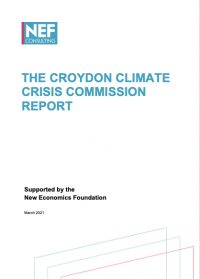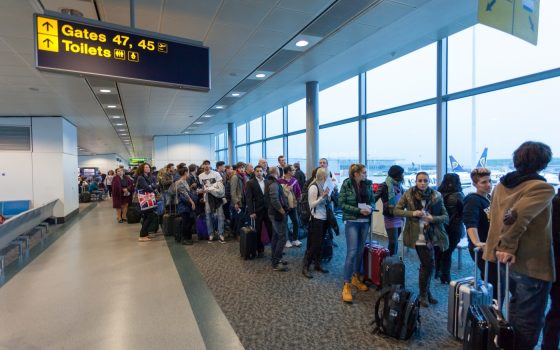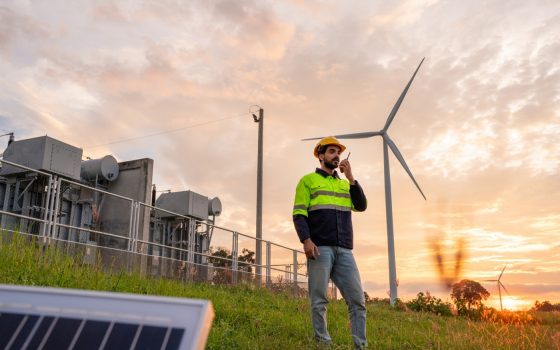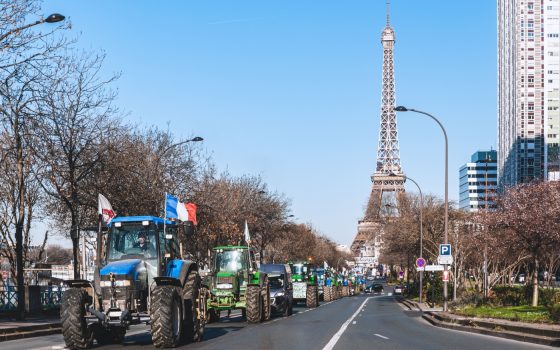The Croydon Climate Crisis Commission Report
The transition to net zero
28 May 2021
The clock is ticking on climate change and our ability to stem the worst impacts of a warming world. As we recover from the Covid-19 pandemic, we need to ensure that we are building an economy fit for the future. In the transition to zero carbon we need to be mindful that we are designing an economy that is fair and just, providing good quality jobs, improving wellbeing, and reducing inequality for people in our communities.
As a large urban borough of London, Croydon has a key part to play in contributing to tackling the climate crisis. Croydon’s emissions are above the median for London boroughs. Many residents in the borough are employed in carbon-intensive industries like freight transport and civil engineering. Simultaneously, Croydon faces climate risks such as overheating due to the urban heat island impact and flooding. The borough has a history of flooding that will likely worsen as Croydon is ranked the fourth settlement in England most susceptible to surface-water flooding. Additionally, Croydon’s expanses of green and open spaces are threatened by development and growth pressures and must be protected to enhance and conserve biodiversity.
In 2019, it was estimated that for Croydon to stay within its carbon budget it would need to deliver the majority of carbon cuts over the next ten years. The analysis also showed that while Croydon could close the gap between its projected emissions in 2050 and a net-zero target by 61% through the adoption of options already available, more innovative options would be required to deliver the last 39%.
In the process of simultaneously reducing emissions while preparing the borough to adapt to climate risks, the Council must remain aware of people’s differing social vulnerabilities to the climate change crisis and seek to implement focused policy solutions that reflect the demographic, social, and environmental contexts of its populace.
Our recommendations
Croydon Council needs to show leadership and establish a clear route to drive rapid reductions in carbon emissions from activities in the borough of Croydon to become carbon neutral by 2030. It cannot achieve the scale of change required within the necessary timeframes without the whole system working together: education, skills, and wider public sector organisations; businesses, employees, and trade unions; the community and voluntary sector; and local residents.
Photo: iStock
Topics Climate change Environment







